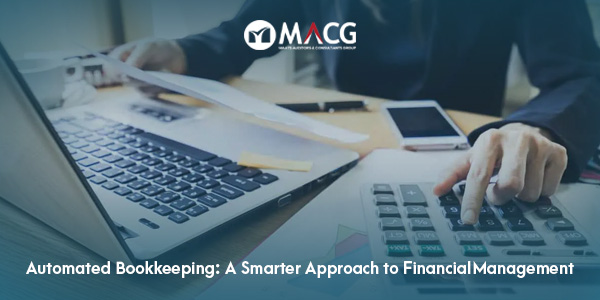The Role of Bookkeeping in Financial Auditing
Financial accuracy is not just a legal requirement; it is a competitive advantage. Whether you’re a startup in Dubai, a growing SME in Sharjah, or an established enterprise in Abu Dhabi, bookkeeping forms the backbone of your company’s financial integrity. It plays a critical role in ensuring smooth financial audits and reliable year-end reporting. Bookkeeping is the day-to-day recording, organizing, and maintaining of a business’s financial transactions. It includes everything from tracking income and expenses to reconciling bank accounts, processing payroll, and managing ledgers. While it may seem like a routine task, bookkeeping serves as the foundation for accurate financial reporting, audit preparation, and strategic business decisions. Why Bookkeeping Is Critical for Financial Audits A financial audit is a formal examination of a company’s financial records by an external auditor. In the UAE, many businesses are required to submit audited financials for compliance with Free Zone Authorities, banks, investors, and the Federal Tax Authority (FTA). Here is how bookkeeping supports a seamless audit process: Provides a Clear Financial Trail Auditors need to trace every transaction from the source document to the financial statement. A well-maintained bookkeeping system ensures that every entry, whether it’s an invoice, expense receipt, or payroll item, is properly categorized and supported by documentation. Without this clarity, audits can be delayed, and compliance risks increase. Ensures VAT Compliance Since the implementation of VAT in the UAE, businesses are expected to maintain accurate records for at least five years. Proper bookkeeping ensures that: These are crucial for VAT audits conducted by the FTA and for avoiding hefty penalties. Minimizes Errors and Discrepancies Disorganized or inconsistent books often lead to discrepancies in reported income, unpaid liabilities, or overstated expenses. This not only increases the risk of audit findings but may also damage the credibility of your financial statements. Routine bookkeeping reduces human error, flags inconsistencies early, and ensures books are always ready for review. Speeds Up the Audit Timeline When your financials are clean and up to date, auditors can do their job faster. This saves time, reduces disruption to your business, and can lower audit costs. It also gives you more time to focus on finalizing your year-end financial strategies. What Happens When Bookkeeping Is Neglected? When bookkeeping is inconsistent or handled in-house by untrained staff, businesses may face: For businesses in the UAE, especially those operating in regulated Free Zones or engaging with foreign partners, this can affect credibility, investor confidence, and growth potential. Bottom Line Bookkeeping isn’t just a back-office task; it is a strategic financial tool that ensures audit readiness, regulatory compliance, and long-term stability. Especially in the UAE’s increasingly regulated environment, businesses must treat bookkeeping as a priority, not an afterthought. If your business is preparing for a financial audit or year-end reporting, don’t leave things to chance. MAATS, a trusted bookkeeping and financial services provider in the UAE, offers expert solutions to keep your books in order, your records compliant, and your audits stress-free. Let MAATS Auditors and Consultants help you stay ahead of the curve; book a consultation today and close your year with confidence.




